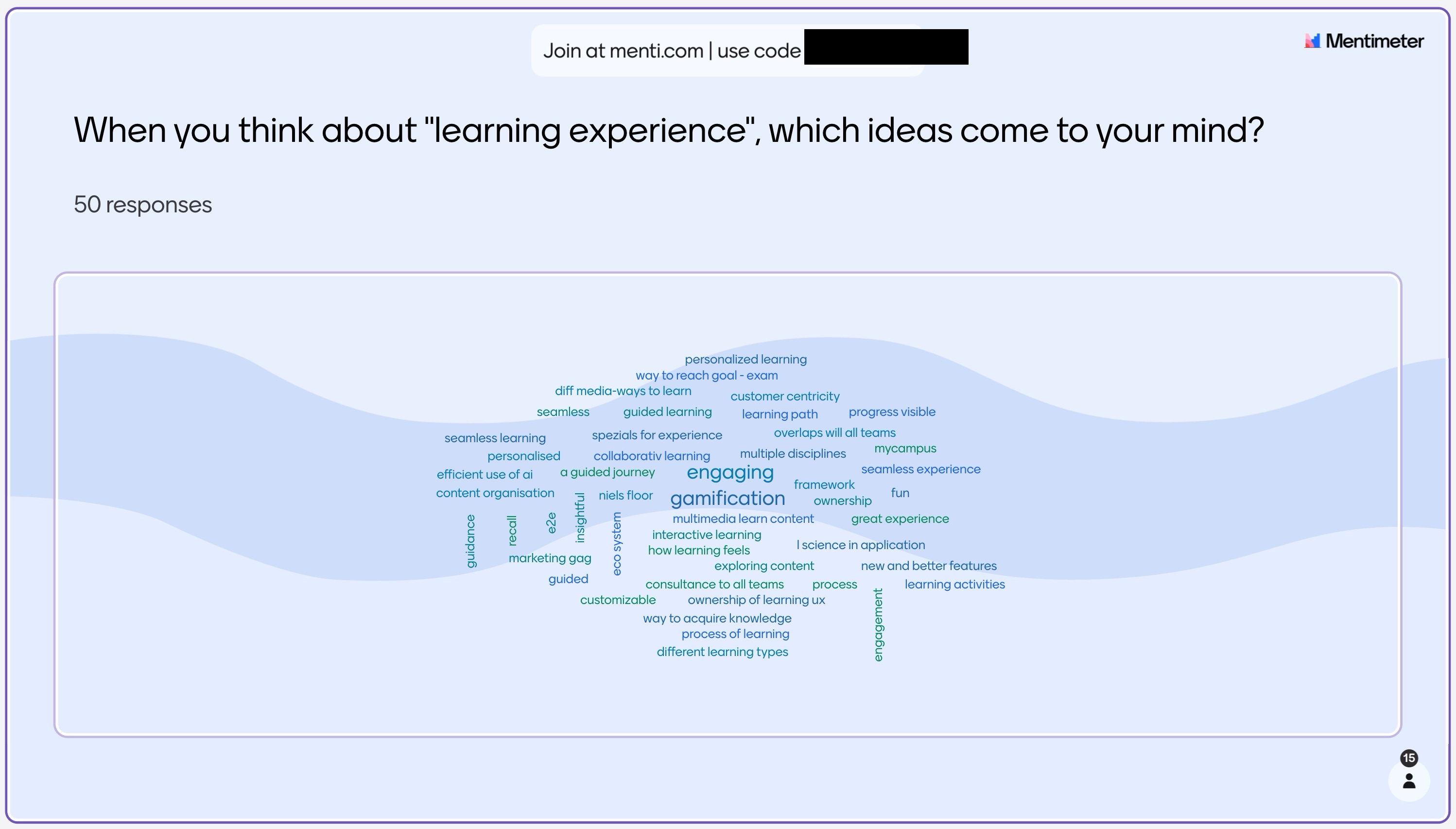Workshop on Instructional Design and LXD

Summary
As Learning Experience Managers, my colleague and I hosted a workshop on Learning Experience Design (LXD) that brought together colleagues from various departments to explore how learning principles can enhance our digital education platform's effectiveness.
Responsibilities: needs analysis, content creation, workshop facilitation
Target audience: employees from various departments (CRM, Product, Analytics, etc)
Tools used: miro board, mentimeter, ppt
Employer: Iu International University of Applied Sciences
Problem Statement
Many employees across departments lack understanding of what Learning Experience Design entails and why it's crucial for online education products. There's a common misconception that building features alone creates an effective learning environment. This leads to platforms that prioritise functionality over learning outcomes, resulting in disengaged users and suboptimal learning experiences. The absence of learning principles in product development can manifest in overwhelming interfaces, unclear progression paths, and ultimately, poor learning outcomes.
Solution
We developed and delivered a cross-functional workshop to address this knowledge gap. The workshop's primary focus was to demonstrate why learning principles should be at the core of developing educational solutions. By bringing together team members from CRM, Product, Analytics, and Marketing, we aimed to create a shared understanding of how LXD principles can guide feature development and implementation.
Workshop Content
Introduction: Understanding Learning Experience
We began with a collaborative brainstorming session where participants shared their perspectives on what constitutes a learning experience. This exercise revealed some misconceptions and highlighted the need for a structured approach to learning design.

The Four Dimensions of Learning
- Motivational Dimension
- Explored how features can support learner autonomy and competence
- Discussed the importance of clear progression paths and achievement recognition
- Examined ways to foster relatedness through platform design
- Cognitive Dimension
- Analysed cognitive load theory and its impact on feature design
- Explored strategies for managing intrinsic, extraneous, and germane load
- Demonstrated how proper content structuring enhances learning efficiency
- Metacognitive Dimension
- Examined self-regulated learning principles
- Discussed implementing features that support planning, monitoring, and reflection
- Explored tools for goal-setting and progress tracking
- Social Dimension
- Investigated the role of social learning in online education
- Explored features that enable peer collaboration and community building
- Discussed integrating mentorship and support systems
Through these dimensions, participants gained a comprehensive understanding of how learning principles should inform every aspect of our platform's development.
Practical Application
Following the theoretical framework, participants engaged in group exercises to apply their new knowledge. Teams collaborated to:
- Identify specific features in their respective areas that could benefit from incorporating these learning dimensions
- Brainstorm concrete ways to implement motivational, cognitive, metacognitive, and social elements into existing and planned features
- Present their ideas to the larger group, fostering cross-departmental dialogue about learning-centered development
This hands-on approach helped solidify understanding of how each department can contribute to creating more effective learning experiences.



